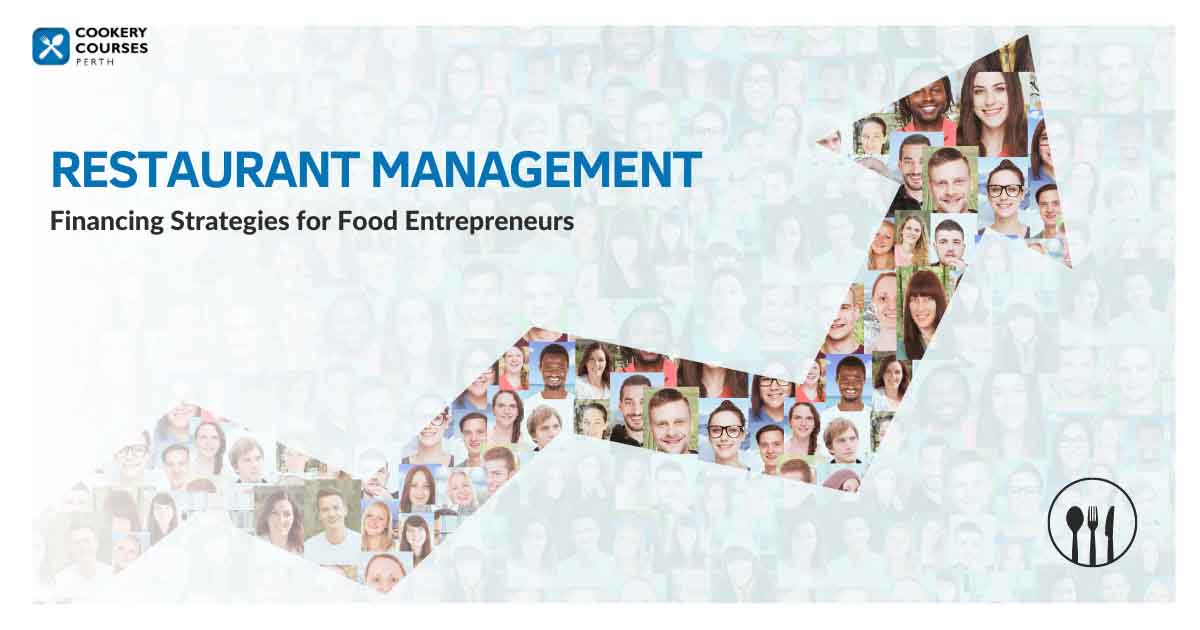How to Deal with Rising Employee turnover in Food Business

The thriving food and dining industry is facing a staffing crisis with skyrocketing employee turnover rates, reaching as high as 150%. For restaurant owners, this poses a significant challenge as high turnover leads to increased costs and negatively impacts business performance. The shortage of staff affects the quality of service and can lead to dissatisfied customers. The reasons behind this crisis are multi-fold, ranging from seasonal employment patterns to the industry’s booming growth and management-related issues.
Understanding the Reasons Behind Employee Departure
Several factors drive employees to leave their restaurant jobs. Feeling unappreciated, lack of meaningful work, limited growth opportunities, conflicts with management or co-workers, and a lack of empowerment are common reasons for dissatisfaction. Identifying these factors through exit interviews can help restaurateurs tackle the root causes of turnover.
Strategies to Improve Employee Retention
- Respect Schedules: Ensure fair and balanced shift schedules to prevent burnout and provide adequate time for employees to recharge.
- Conduct Salary Reviews: Offer competitive compensation packages to attract and retain top talent. Benchmark against industry wages and reward loyalty with incentives.
- Employee Recognition Programs: Establish programs that acknowledge and celebrate employees’ contributions, fostering a sense of belonging and motivation.
- Focus on Well-being: Create a supportive environment where employees’ mental and physical well-being is prioritized, encouraging open communication and a sense of acceptance.
- Provide Growth Opportunities: Offer clear paths for advancement and professional development to keep employees engaged and motivated to excel.
- On-the-Job Training: Invest in continuous training to improve employees’ skills and knowledge, increasing their productivity and commitment to the business.
- Hire Wisely: Conduct thorough hiring processes to find candidates aligned with the company’s vision and values. Seek experienced, positive, and team-oriented individuals who understand the challenges of the restaurant industry.
Staff Management Tips: A Successful Food Business
Starting a food business can be an exciting venture, but it comes with its fair share of challenges, especially when it comes to staff management. As the hospitality industry faces increasing demands and competition, hiring and retaining top-notch staff becomes crucial for success. To ensure your food business thrives, follow these essential staff management tips:
1. Build a Strong Foundation with the Right Team
Your team is the backbone of your food business, so invest time and effort in assembling a talented and dedicated staff. Look for individuals who align with your business’s values and have the necessary skills and experience to excel in their roles. Conduct thorough interviews and background checks, and don’t hesitate to ask for references to ensure you’re hiring the best candidates.
Career Opportunities 1: Certificate III Commercial Cookery
2. Nurture a Positive Work Environment
Creating a positive work culture is vital for staff morale and retention. Treat your employees with respect, provide regular feedback, and recognize their hard work. Encourage open communication and be approachable as a leader, fostering a sense of trust and camaraderie among your team members.
3. Offer Competitive Compensation and Benefits
Competitive wages and attractive benefits play a significant role in attracting and retaining top talent. Research industry standards and adjust your compensation packages accordingly. Additionally, consider offering perks like health insurance, flexible schedules, and employee discounts to make your food business an appealing place to work.
Career Opportunities 2: Certificate IV Commercial Cookery
4. Provide Training and Development Opportunities
Investing in your employee’s growth and development not only enhances their skills but also demonstrates your commitment to their success. Offer regular training sessions, workshops, and opportunities to learn new skills. Well-trained staff will deliver better service and contribute to the overall success of your food business.
5. Foster a Team-Oriented Atmosphere
Encourage teamwork among your staff members. A cohesive team can handle challenges more effectively and deliver excellent customer service. Organize team-building activities, collaborative projects, and encourage cross-training among different roles. This not only strengthens your staff’s abilities but also creates a supportive work environment.
6. Address and Resolve Issues Promptly
No workplace is without its challenges. When issues arise, address them promptly and professionally. Listen to your employees’ concerns and take appropriate action to resolve conflicts or difficulties. Proactively dealing with problems can prevent escalation and maintain a harmonious workplace.
Career Opportunities 3: Diploma of Hospitality Management
( Commercial Cookery Pathway)
7. Recognize and Reward Achievements
Recognizing and rewarding your staff’s achievements can boost motivation and job satisfaction. Implement a reward system that acknowledges outstanding performance, whether through verbal praise, an employee of the month programs, or bonuses. When employees feel appreciated, they are more likely to remain committed to your food business.
8. Lead by Example
As a leader in your food business, your actions and attitudes set the tone for the entire team. Demonstrate professionalism, enthusiasm, and a strong work ethic. Show your dedication to the business and its success, and your employees will be inspired to do the same.
9. Embrace Flexibility
In the ever-changing hospitality industry, flexibility is key. Be open to adjusting schedules, accommodating personal needs when possible, and adapting to seasonal demands. A flexible approach demonstrates your understanding of your employee’s lives outside of work and fosters a positive work-life balance.
Career Opportunities 4: Advanced Diploma of Hospitality Management ( Commercial Cookery )
10. Encourage Feedback and Continuous Improvement
Encourage feedback from your staff on various aspects of the business, from operations to customer service. Actively seek suggestions for improvement and take their input into account. A culture of continuous improvement shows that you value your employees’ opinions and are committed to growing and evolving your food business.
Conclusion
Effective staff management is vital for the success of any food business. By building a strong team, fostering a positive work environment, offering competitive compensation and benefits, providing training opportunities, and leading by example, you can create a thriving and motivated workforce. Remember that investing in your employees’ well-being and growth will pay off in the form of better customer service, increased loyalty, and ultimately, the success of your food business.
Recent Post

Transform Your Career Trajectory With Commercial C
Apr 04, 2024

Interesting Facts About Commercial Cookery Courses
Mar 04, 2024

6 Tips to Manage the Restaurant Kitchen Efficientl
Feb 06, 2024

Top Soft Skills Seeks In 2024 By Employers
Jan 15, 2024

Advantages of a Commercial Cookery Certification
Dec 12, 2023

Nov 21, 2023

Transform Your Passion for Baking into a Flourishi
Nov 17, 2023

Distinguishing the Roles: Chef vs. Kitchen Manager
Sep 18, 2023

Starting a Food Business in Australia – Hire
Sep 04, 2023

Financing Strategies for Food Entrepreneurs : Navi
Aug 22, 2023
CONTACT US
We are always happy to help out whatever way we can
